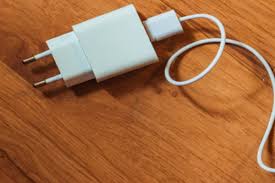“Rising Threat of USB Charger Scams in India: Understanding Risks and Safety Measures”
The Indian government has issued a warning to citizens regarding the growing threat of a USB charger scam targeting individuals who use public charging portals at locations such as airports, cafes, hotels, and bus stands. This scam, known as the “USB charger scam,” poses serious risks to users’ data security and device integrity.


The Indian government has issued a warning to citizens regarding the growing threat of a USB charger scam targeting individuals who use public charging portals at locations such as airports, cafes, hotels, and bus stands. This scam, known as the “USB charger scam,” poses serious risks to users’ data security and device integrity.
Cybercriminals exploit USB charging ports in public places to carry out malicious activities. By compromising these charging stations, they can launch juice-jacking cyber attacks. Juice jacking is a strategy where hackers use public USB charging stations to steal user data or install malware on connected devices.
When unsuspecting individuals plug their devices into infected USB ports, cybercriminals gain access to personal information, install malware or ransomware, and may even encrypt devices to demand ransom payments. This poses a significant threat to users’ privacy and financial security.
To safeguard against the USB charger scam and potential cyber attacks, here are some essential tips for staying safe:
- Prefer Electrical Wall Outlets or Personal Cables: Whenever possible, use electrical wall outlets for charging your devices. If using public charging stations is necessary, consider carrying your own cables or power banks to avoid connecting to unknown and potentially compromised USB ports.
- Secure Your Device: Always lock or secure your device with a password or biometric authentication. Avoid pairing your device with unknown devices, as this could expose it to unauthorized access and data theft.
- Charge When Turned Off: Consider charging your phone or other devices when they are turned off to minimize the risk of data theft or malware installation during charging.
In the event of a cyber fraud incident or suspicious activity, individuals are encouraged to report such incidents promptly. They can visit www.cybercrime.gov.in or call 1930 to report cybercrime and seek assistance from authorities.
By raising awareness about the USB charger scam and implementing cybersecurity best practices, individuals can protect themselves and their sensitive information from falling victim to cybercriminals operating through public charging portals.
Sources By Agencies







